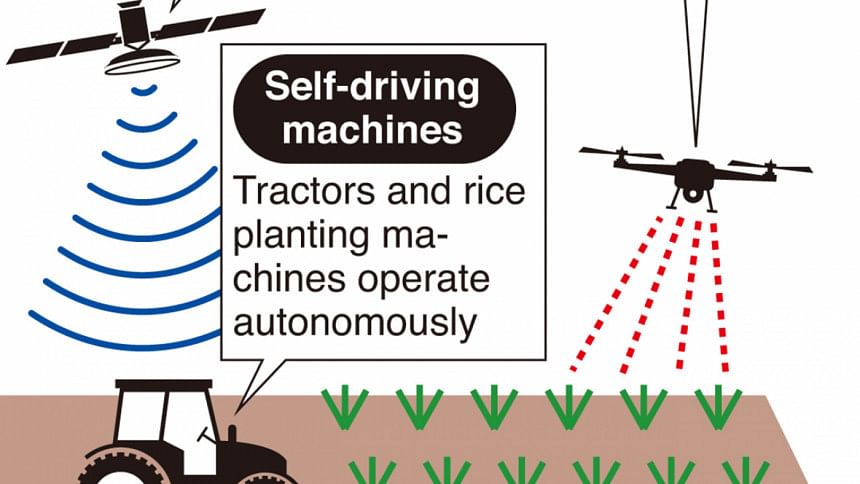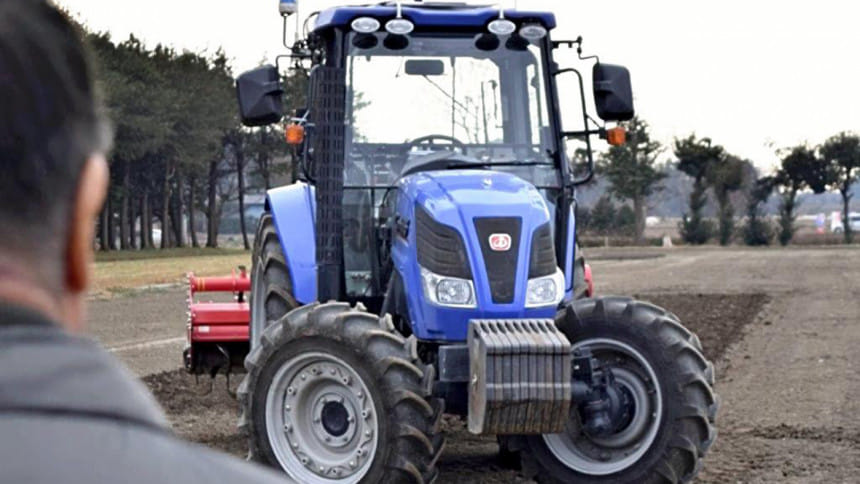‘Smart farming’ plows ahead in Japan

"Smart farming," which utilises cutting-edge robotics and artificial intelligence, could hold the key to an agricultural resurgence in a nation of graying farmers and a general population reluctant to toil in the soil.
Major agricultural machinery makers are already pouring resources into developing new equipment, and the Japanese government is planning experiments to test self-driving tractors and other technologies at about 50 model farms starting next fiscal year.
Building a better tractor
A new robotic tractor was unveiled Jan. 15 at a research firm run by the National Agriculture and Food Research Organization, a state research and development institute based in Tsukuba, Ibaraki Prefecture. With no one in the driver's seat, a worker standing off to the side used a tablet computer to make the tractor stop and go. When the tractor reached the edge of the field, it made a rapid U-turn. In no time at all the field was plowed.
The tractor's motions can be monitored on a screen, which allowed the worker to operate two tractors simultaneously. Kubota Corp. has started test-marketing of a tractor that can plow both wet and dry fields. It uses satellite location data to move automatically at a high level of precision, with only a few centimeters of error.
"In the future, we will achieve 'unmanned farming,' in which AI will comprehensively analyze satellite, meteorological and other data so robot farm machines can operate automatically," said Yuji Tomiyama, a Kubota managing executive officer.Yanmar Co. and Iseki & Co. are already marketing self-driving tractors.Another area of progress is in the use of small drones.

Agricultural drones are used not only to spray agricultural chemicals and monitor crops, but also to detect outbreaks of harmful pests using specialized image analysis software. In rice farming, "internet of things" technology is being used to control the flow of water into and out of paddies. Farmers can use a smartphone to automatically open and close a paddy's input and output valves to regulate water levels.
Increasing profitability
The government's experiments include efforts to make farming more profitable, such as by aiming to increase the value of produce by at least 10 percent while also decreasing production costs by at least 20 percent. Farmers and others have come to see the experiments for themselves. "Smart technology has the potential to dramatically change farming," Agriculture, Forestry and Fisheries Minister Takamori Yoshikawa said. However, farmers feel a mix of both hope and anxiety.
"Farm work gets harder every year and automation could probably relieve a lot of that burden," said a 68-year-old farmer who grows mainly rice on about 4 hectares in Daisen, Akita Prefecture. "But things like self-driving tractors are too expensive. It doesn't pay for small farmers to buy them."
Copyright: The Japan News/ Asia News Network

 For all latest news, follow The Daily Star's Google News channel.
For all latest news, follow The Daily Star's Google News channel. 




Comments